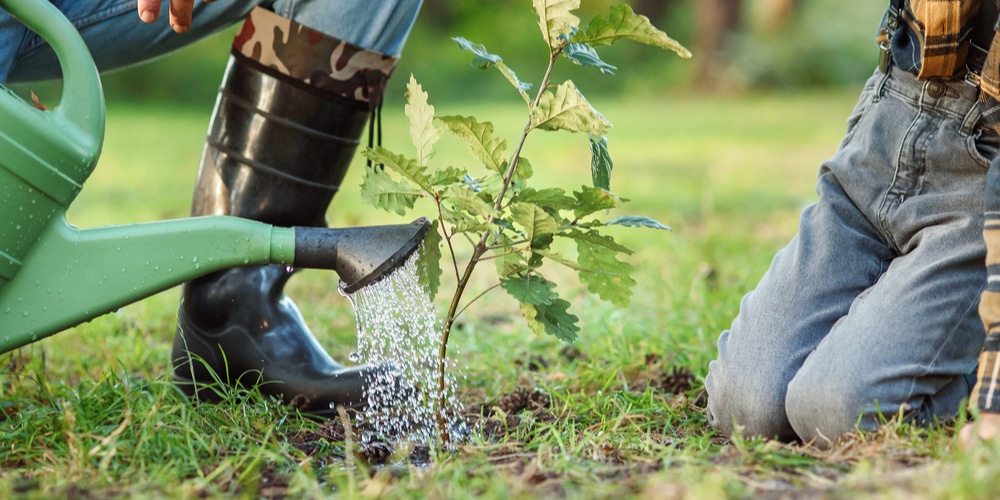Maybe you’ve heard or read about success stories of gardeners pouring in their morning drink of tea onto their plants and seeing amazing results. Can you water plants with tea and expect the same?
Generally speaking, it’s okay to pour in a cup of your favorite leaf brew once in a while, but your plants can suffer from the effects of too much nitrogen, chemicals, or pesticides that are inherent in non-organic products when done too frequently. Tea is a weak substitute for fertilizer, and only a few types of plants will appreciate it.

Tea and Plants – A Good Combination?
Before you try watering your plants with tea, it’s best to understand the composition of tea and what you’ll be introducing to your beloved plants.
A typical tea bag is more than just tea leaves. There are thousands of different ingredients, and there are organic and non-organic ones. Hint- non-organic tea can contain a whole lot of pesticides that aren’t fit for plants.
In general, tea leaves are made up of 4.4 percent nitrogen, .24 percent phosphorus, and .25 percent potassium. If you’ve worked with fertilizer before you’ll know that these are good numbers for plants. The rest are antioxidants, theanine, polyphenols, and vitamins and minerals.
Tea Has Too Much Nitrogen
4.4% nitrogen is a bit too much for plants to handle. There’s also the matter of acidity- tea is on the acidic side, which means it’s good for plants that like their soil on the low pH side.
Keep in mind that not all plants like to sit on acidic soil, especially for extended periods. However, some can benefit from it, particularly philodendrons, tomatoes, oxalis, hydrangeas, rubber plants, poinsettias, and spider plants.
But what if your soil is already acidic? Wouldn’t that add more acid (and therefore become harmful?) To this end, it’s recommended that you conduct a soil test first to see if it needs that cup of tea, and this requires sending a sample to the local agricultural extension or buying a soil testing kit.
All of these things sound like too much trouble, and it probably is. You could just be wondering if you could pour in your leftover drink in the plant that’s right beside you and aren’t prepared to check the soil for pH level. You may also not know what type of plant it is and if it needs a slightly acidic soil. So, instead of risking it you can just very well leave your plant alone and throw the rest of your refreshment in the drain.
What About Tea Grounds and Unused Leaves?
Tea grounds can be mixed with soil in order to give it that acidity and add some vital nutrients, right?
The same rules apply to tea in plants as well. It’s probably okay to put it in once in a while, but when you do it regularly your plants may not like it.
The reason is simple- too much of a good thing can be ultimately bad in the end. Too much nitrogen can result in poor soil and a dead plant, and the same goes for acidity. It’s infinitely better to stick with fertilizer as they’re made specifically for plants, and there are directions for use so you won’t overdo it.
There’s also the fact that non-organic tea tends to have a lot of pesticides, which can be beneficial to a degree. The best rule is to do it occasionally but not make it a habit.
When you do, let the solution cool off since the hot temperature can cause shock, and when throwing in a tea bag don’t include the net nor the staple wire.
Can You Water Plants with Tea? Final Thoughts
Generally, it’s fine to water your plants with an occasional cup or two of tea. However, it’s not a good idea to substitute fertilizer with tea, as tea can be harmful when applied in substantial amounts and over a period of time.
Your plants will like the occasional acidity and minerals tea brings, but too much will kill them. Only a few types like having acidic soil- all others will want a balanced mix that only a fertilizer can provide.
Related article: Are coffee grounds a good fertilizer for orchids?
